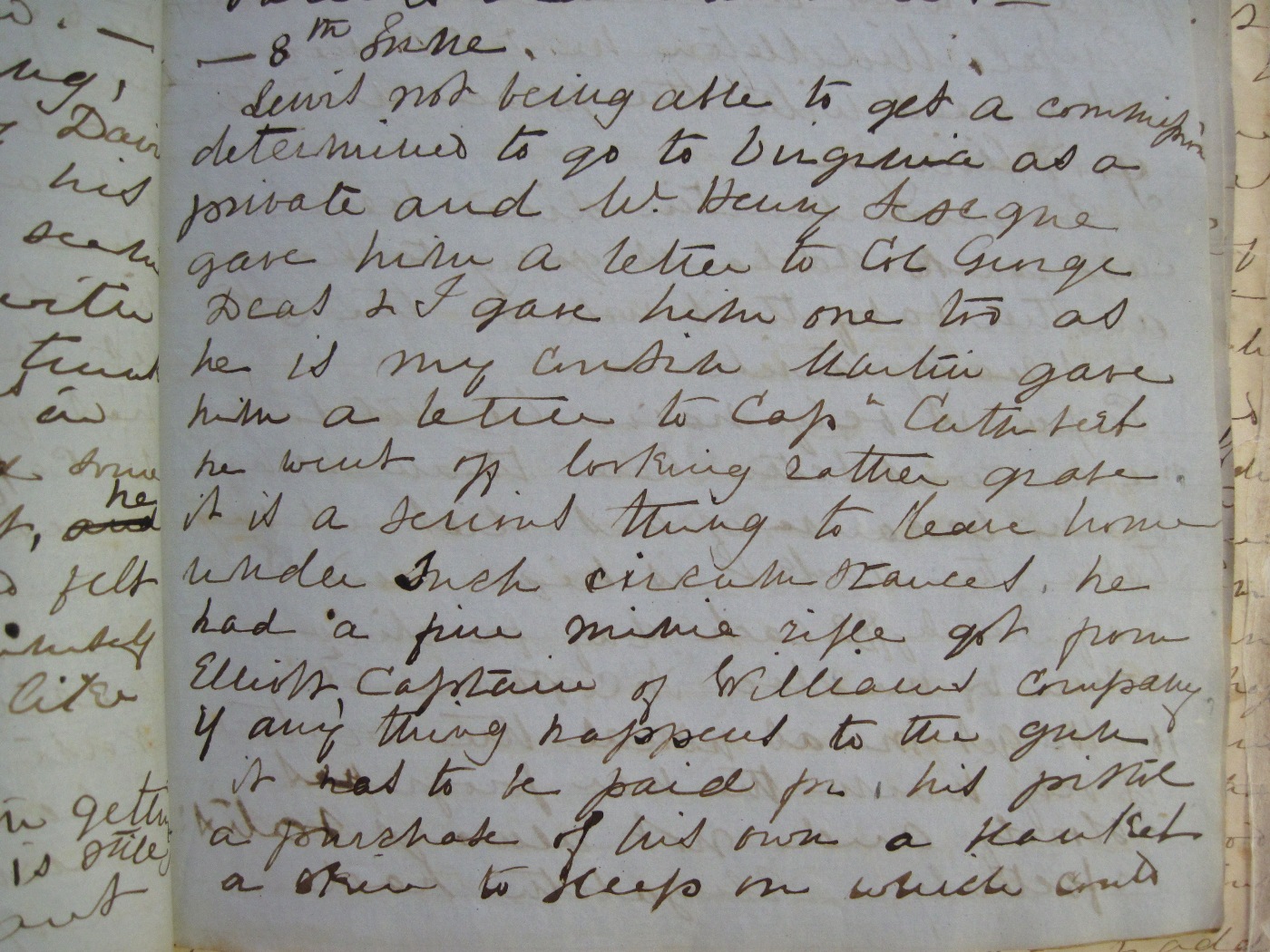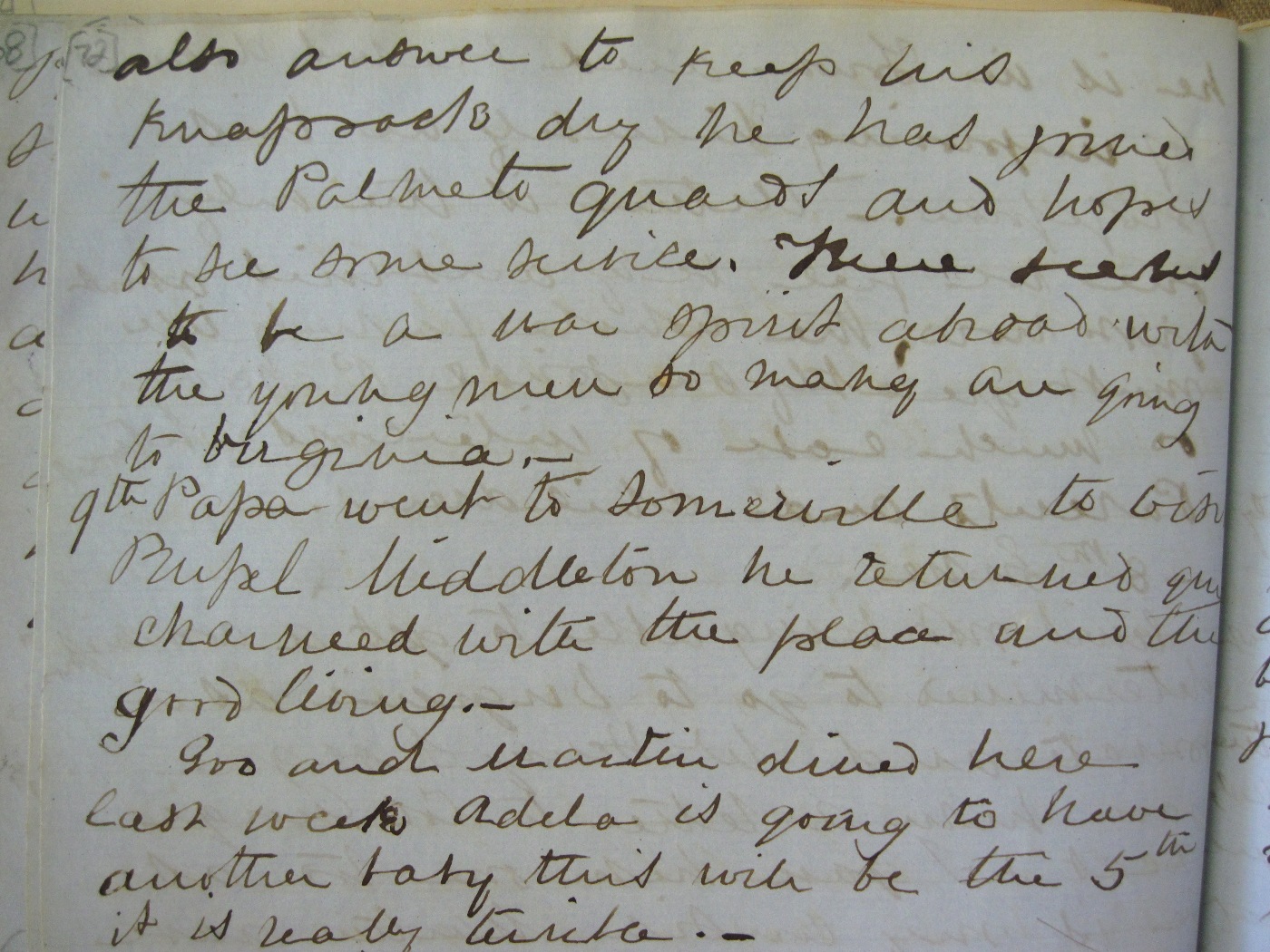Item description: Grimball comments on the enlistment of her cousin, Lewis, and his subsequent departure for the battlefront in Virginia.
Item citation: From the Margaret Ann Meta Morris Grimball Diary #975-z, Southern Historical Collection, The Wilson Library, University of North Carolina at Chapel Hill.
Item transcription:
[click here to read a transcription of the full diary, via Documenting the American South]
Lewis not being able to get a commission determined to go to Virginia as a private and Mr Henry Lesegne gave him a letter to Col. George Deas, & I gave him one, too, as he is my Cousin. Martin gave him a letter to Capn Cuthbert, he went off looking rather grave. It is a serious thing to leave home under such circumstances. He had a fine minie rifle got from Elliott, Captain of William’s Company. If any thing happens to the gun it has to be paid for. His pistol a purchase of his own, a blanket, a skin to sleep on which could also answer to keep his knapsack dry. He has joined the Palmeto Guards and hopes to see some service. There seems to be a war spirit abroad with the young men, so many are going to Virginia.
More about this item:
The collection is the manuscript diary, 1860-1866, of Margaret Ann Meta Morris Grimball, with the greater part of the entries concentrated in 1861 and 1862. Mrs. Grimball wrote from the Grove Plantation (Colleton District, S.C.), primary Grimball residence until after the Civil War; from Charleston, S.C., where the family spent the summer months; and from Spartanburg, S.C., where they took refuge in May 1862 from anticipated Union attacks on the South Carolina coast. Topics include plantation life; slave management; the progress of the Civil War and its effects on the lives of those close to Mrs. Grimball, including the activities of her sons in the Confederate army and Confederate navy, and civilian relief efforts; sickness among the civilian and military population; the family’s removal to the relative safety of Spartanburg, where they rented quarters at Saint John’s College; her husband’s conversion from Presbyterianism to Episcopalianism; her daughters’ teaching careers; and other family and community matters.



